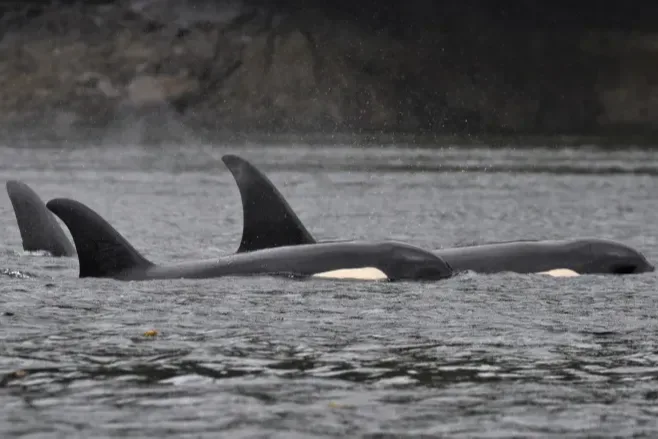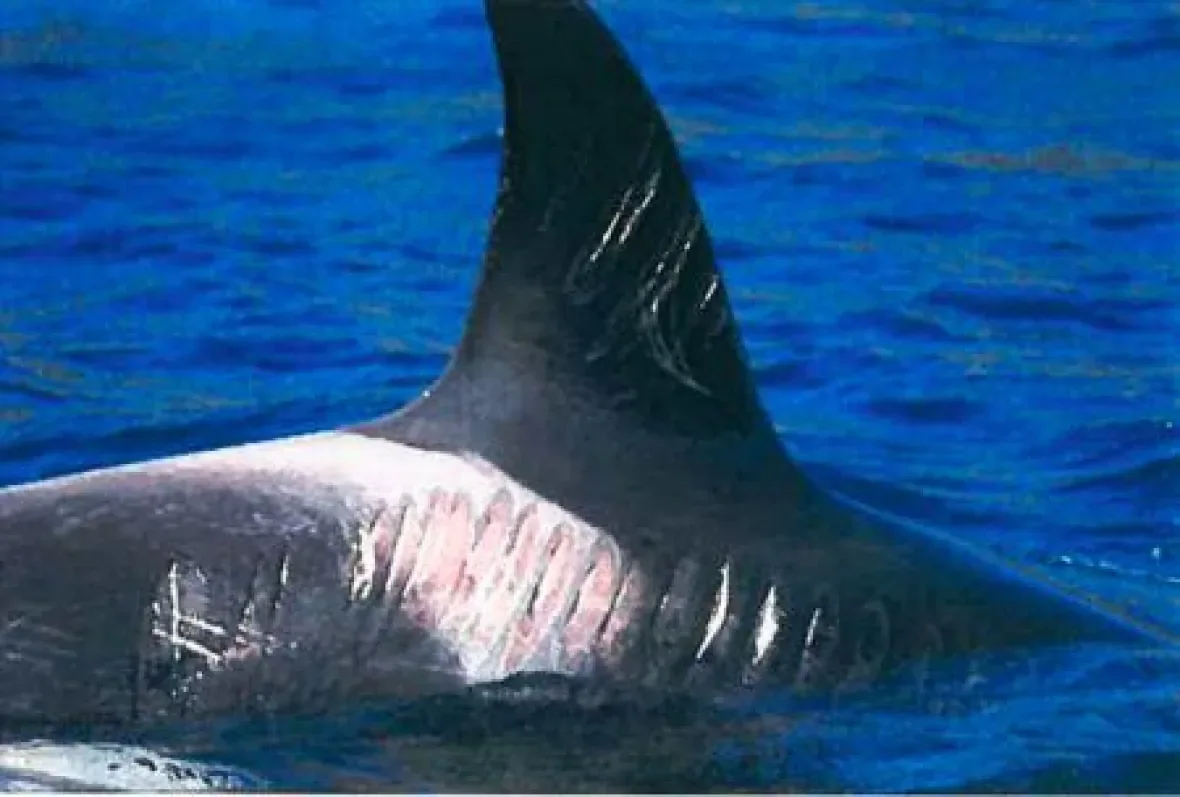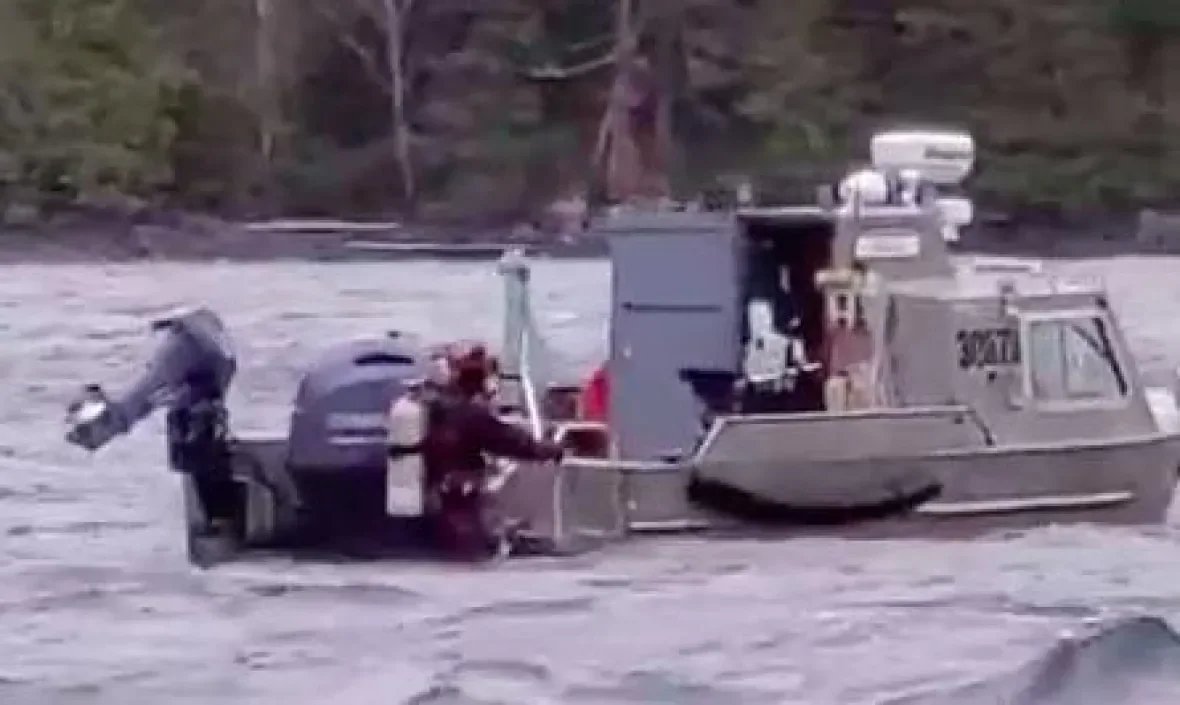
Threat to killer whales highlighted in case of B.C. diver who got too close
A research biologist whose photographs helped secure a $12,000 fine against a B.C. man accused of getting too close to killer whales says strong penalties are needed to protect the magnificent mammals from curious humans.
Karina Dracott provided investigators with images used to identify a pod of northern resident killer whales disturbed by a scuba diver who placed his boat directly in their path as they passed through the harbour in Prince Rupert, B.C., in April 2020.
MUST READ: The best outdoor blankets for chilly nights
Dracott — who co-ordinates the North Coast Cetacean Research Initiative — says the case highlights a problem which reaches well beyond one isolated incident.
"People are approaching marine mammals quickly and coming in too close and making a ton of noise that can really disturb or stress them. And it's not just the impact of one boat. But imagine how many boats are doing this. So it's the compounding interest of this kind of disturbance," Dracott told the CBC.
"I think a few fines where people really are disregarding the regulations can have a big impact."

A photograph taken by Karina Dracott shows a pod of killer whales off Prince Rupert, B.C., on April 25, 2020, hours before an incident that led to a $12,000 fine for a diver who got too close to the pod. (Karina Dracott, Ocean Wise, photo taken under DFO Marine Mammal Research Licence)
'Attempt to swim with or interact with the whales'
A provincial court judge fined Thomas Gould in July after the Prince Rupert man pleaded guilty to violating Federal Fisheries Act regulations prohibiting vessels from getting closer than 200 metres to killer whales. The $12,000 fine is the largest ever levied for the offence.
The CBC has obtained a recording of the proceeding — which saw a joint submission from the Crown and Gould's lawyer. The case speaks both to threats facing killer whales and amended regulations that make it illegal to swim, dive or interact with the marine mammals.
The evidence included harbour security footage and a video posted to Facebook of Gould in full scuba gear hanging off a ladder on the back of his boat — the Ice Cube — as the group of seven killer whales made its way through the harbour.

This image of a northern resident whale injured by a boat propeller was included in an impact statement prepared by Fisheries and Oceans Canada (DFO) in relation to an incident where a B.C. man was fined for getting too close to a pod. (Department of Fisheries and Oceans/G. Ellis)
The pod — named A42 after the eldest female, who is also known as Sonora — comprised A42 and five of her offspring, including a calf born in 2017. The seventh member of the pod was a calf born to one of A42's daughters in 2018.
Federal prosecutor Joshua Cramer claimed Gould was caught in "an apparent attempt to swim with or interact with the whales."
"The video footage shows the vessel driving alongside the whales and then overtaking them and positioning itself in their path," Cramer told the judge.
"While Mr. Gould was in the water, a large whale and calf came up to the surface in very close proximity ... so close that the dorsal fin of the larger of the whales could be seen in the video in close proximity of the vessel towering over the wheelhouse of the Ice Cube."
'Living on the edge of survival'
As of 2020, there were known to be only 310 northern resident killer whales in existence.
A Fisheries and Oceans Canada impact statement filed with the court said both "parking in the path" of whales and "leapfrogging" to place a boat in front of a pod "have a high potential to alter the whale's behaviour or direction of travel and increase the likelihood of physical contact between the vessel and animal."
WATCH: Resident orcas on the West Coast are getting additional protections
The report included a picture of a northern resident whale injured by a propeller and said close approaches from vessels can disrupt the resting, feeding, socializing and nursing of calves.
"As a threatened species, they are often living on the edge of survival," Cramer told the judge.
The impact statement concluded Gould's activities "are highly likely to have disturbed or disrupted the behaviour of killer whales, in addition to putting them at increased risk of injury."
A series of decisions in recent years have seen a gradual rise in fines related to the disturbance of marine life.
Cramer cited a 2004 decision that saw the operator of a whale watching business fined $6,400 for approaching too closely. In the same year, another boat operator was fined $3,000 after panicking when he suddenly found himself in the middle of a pod of whales.
A recent provincial court decision saw a man who had repeatedly violated the Fisheries Act fined $40,000 for placing prawn traps in a glass sponge reef.
'Mr. Gould was not swimming'
Gould's lawyer — Christopher Harvey — rejected the assertion his client was trying to swim with the whales.
"Mr. Gould was not swimming. He was hanging off the stern of the vessel, attempting to see if he could see underwater the whales," Harvey told the judge.
"But the whole thing was misconceived from the start because, given the turbidity of the harbour in Prince Rupert, it would be impossible to see whales at a distance such as that."

A video viewed by DFO investigators shows Thomas Gould in diving gear on the back of his boat, the Ice Cube, on April 25, 2020. (Hiwaas Henry William Clifton Jr./Facebook)
Gould has a commercial fishing licence for his boat; Cramer argued that gave him a "special responsibility" to be aware of the regulations.
But Harvey said the 200-metre buffer zone — which came into force in 2018 — was a "fairly recent amendment to the regulations."
"It's not generally known, and I think it's slightly unfair to say that because Mr. Gould had a commercial fishing licence, he should be said to have had an enhanced awareness of the regulations relating to killer whales," Harvey said.
"Because there's no real connection between commercial fishing and killer whales."
Dracott, whose research is backed by the conservation group Ocean Wise, said she believes the regulations are well known. She said her group has publicized the rules through signs and interviews.
WATCH: Once in a lifetime spotting of an all-white orca
And if they didn't know about the consequences before, she believes the headlines surrounding Gould's case will make a difference.
Harvey said Gould is a young man who makes his living as a diver but has applied to join the Navy.
"This event and this charge have definitely been a learning exercise for Mr. Gould," Harvey said.
"He's now well aware that there is a 200-metre buffer zone."
The story, written by Jason Proctor, was originally published for CBC News.